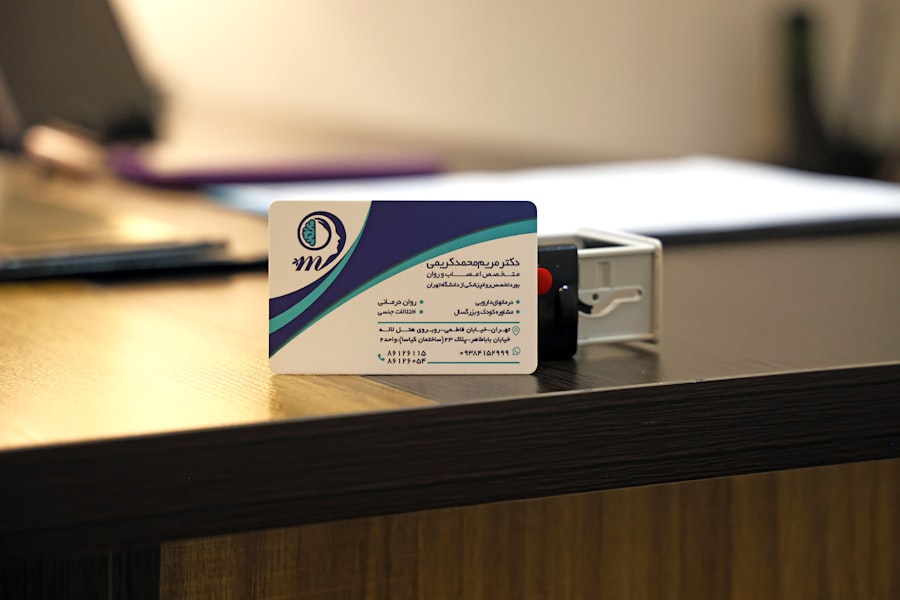In the rapidly evolving landscape of healthcare, the role of a medical marketing agency has become increasingly vital. These specialized agencies are designed to bridge the gap between healthcare providers and patients, ensuring that medical practices effectively communicate their services and value propositions. Unlike traditional marketing firms, medical marketing agencies possess a deep understanding of the healthcare industry, including regulatory requirements, patient behavior, and the nuances of medical terminology.
This expertise allows them to craft tailored marketing strategies that resonate with both patients and healthcare professionals. Medical marketing agencies offer a wide array of services, including branding, digital marketing, content creation, and public relations. They help practices establish a strong online presence through website development and search engine optimization (SEO), ensuring that potential patients can easily find them when searching for medical services.
Additionally, these agencies often conduct market research to identify target demographics and patient needs, enabling practices to tailor their offerings accordingly. By leveraging their industry knowledge and marketing skills, medical marketing agencies play a crucial role in enhancing patient engagement and driving practice growth.
Key Takeaways
- Medical marketing agencies specialize in promoting healthcare practices effectively.
- Assessing your practice’s unique marketing needs is crucial before selecting an agency.
- Digital marketing and social media are key tools for reaching and engaging patients.
- Tracking marketing performance helps optimize strategies and improve results.
- Establishing a strong, ongoing relationship with your agency ensures sustained success.
Identifying Your Practice’s Marketing Needs
Before embarking on a partnership with a medical marketing agency, it is essential for healthcare practices to identify their specific marketing needs. This process begins with a thorough assessment of the practice’s current marketing efforts, including an analysis of existing branding, online presence, and patient outreach strategies. Understanding what is working well and what areas require improvement can provide valuable insights into the practice’s unique challenges and opportunities.
Practices should also consider their target audience when identifying marketing needs. Different specialties may attract varying demographics, each with distinct preferences and behaviors. For instance, a pediatric practice may need to focus on engaging parents through family-oriented content, while a dermatology clinic might prioritize reaching young adults concerned about skin health.
By clearly defining their target audience and understanding their preferences, practices can better communicate their value proposition and tailor their marketing strategies to meet the needs of potential patients.
Choosing the Right Medical Marketing Agency for Your Practice

Selecting the right medical marketing agency is a critical decision that can significantly impact a practice’s success. When evaluating potential agencies, it is essential to consider their experience within the healthcare sector. Agencies with a proven track record in medical marketing will have a deeper understanding of industry regulations, patient privacy laws, and ethical considerations that govern healthcare advertising.
This expertise can help ensure that marketing campaigns are not only effective but also compliant with relevant guidelines. Another important factor to consider is the agency’s approach to collaboration and communication. A successful partnership requires open lines of communication and a shared vision for the practice’s marketing goals.
Prospective clients should seek agencies that prioritize understanding their unique needs and are willing to work closely with them throughout the marketing process. Additionally, reviewing case studies or testimonials from previous clients can provide valuable insights into an agency’s capabilities and results, helping practices make informed decisions.
Leveraging Digital Marketing Strategies for Healthcare
| Digital Marketing Strategy | Key Metrics | Healthcare Application | Impact |
|---|---|---|---|
| Search Engine Optimization (SEO) | Organic Traffic, Keyword Rankings, Bounce Rate | Improves visibility of healthcare websites and patient education content | Increased patient inquiries and appointment bookings |
| Content Marketing | Page Views, Time on Page, Social Shares | Publishing blogs, articles, and videos on health topics | Enhanced patient engagement and trust |
| Social Media Marketing | Follower Growth, Engagement Rate, Click-Through Rate (CTR) | Promoting health campaigns and patient testimonials on platforms like Facebook and Instagram | Broader reach and community building |
| Email Marketing | Open Rate, Click Rate, Conversion Rate | Sending appointment reminders, health tips, and newsletters | Improved patient retention and adherence to care plans |
| Pay-Per-Click Advertising (PPC) | Impressions, Clicks, Cost Per Click (CPC), Conversion Rate | Targeted ads for specialized healthcare services | Faster patient acquisition and lead generation |
| Online Reputation Management | Review Ratings, Number of Reviews, Response Time | Managing patient reviews on platforms like Google and Healthgrades | Increased trust and improved brand image |
| Telehealth Promotion | Number of Telehealth Appointments, User Sign-ups, Engagement Rate | Marketing virtual healthcare services | Expanded access to care and patient convenience |
In today’s digital age, leveraging effective digital marketing strategies is essential for healthcare practices looking to attract new patients and retain existing ones. One of the most critical components of digital marketing is search engine optimization (SEO), which involves optimizing a practice’s website to rank higher in search engine results. By incorporating relevant keywords related to their services and location, practices can increase their visibility online and drive more traffic to their websites.
Content marketing is another powerful digital strategy that can enhance a practice’s online presence. By creating informative blog posts, articles, and videos that address common patient concerns or highlight recent advancements in their field, practices can position themselves as thought leaders in healthcare. This not only helps build trust with potential patients but also improves SEO rankings as search engines favor high-quality, relevant content.
Furthermore, email marketing campaigns can be utilized to keep patients informed about new services, health tips, or upcoming events, fostering ongoing engagement and loyalty.
Utilizing Social Media and Online Reputation Management
Social media has emerged as a crucial platform for healthcare marketing, allowing practices to connect with patients on a more personal level. By establishing a presence on platforms such as Facebook, Instagram, and Twitter, practices can share valuable content, engage with followers, and promote their services in an interactive manner. Social media also provides an opportunity for practices to showcase patient testimonials and success stories, which can significantly enhance credibility and attract new patients.
Online reputation management is equally important in today’s digital landscape. Patients often turn to online reviews when selecting healthcare providers, making it essential for practices to actively monitor and manage their online reputation. Encouraging satisfied patients to leave positive reviews on platforms like Google My Business or Healthgrades can help bolster a practice’s reputation.
Additionally, addressing negative feedback promptly and professionally demonstrates a commitment to patient satisfaction and can mitigate potential damage to the practice’s image.
Implementing Patient Education and Engagement Campaigns

Patient education is a fundamental aspect of effective healthcare marketing. By providing patients with valuable information about their health conditions, treatment options, and preventive measures, practices can empower individuals to take charge of their health. Educational campaigns can take various forms, including informative brochures, webinars, or interactive online resources that address common questions or concerns.
Engagement campaigns are equally important in fostering strong relationships between practices and patients. These campaigns can include initiatives such as health fairs, community workshops, or online forums where patients can ask questions and share experiences. By actively engaging with patients in meaningful ways, practices can build trust and loyalty while encouraging patients to take an active role in their healthcare journey.
Measuring the Success of Your Marketing Efforts
To ensure that marketing efforts are yielding positive results, it is essential for healthcare practices to implement robust measurement strategies. Key performance indicators (KPIs) should be established to evaluate the effectiveness of various marketing initiatives. Common KPIs in healthcare marketing include website traffic, conversion rates (the percentage of visitors who schedule appointments), social media engagement metrics, and patient feedback scores.
Regularly analyzing these metrics allows practices to identify trends and make data-driven decisions about their marketing strategies. For instance, if a particular campaign generates high website traffic but low appointment bookings, it may indicate that adjustments are needed in the messaging or call-to-action elements. By continuously monitoring performance and adapting strategies accordingly, practices can optimize their marketing efforts for maximum impact.
Building a Long-Term Partnership with Your Medical Marketing Agency
Establishing a long-term partnership with a medical marketing agency can provide significant benefits for healthcare practices. A collaborative relationship allows for ongoing communication and alignment on marketing goals, ensuring that strategies remain relevant as the practice evolves over time. Regular check-ins and strategy sessions can help both parties stay informed about industry trends and emerging opportunities.
Moreover, a long-term partnership fosters trust and understanding between the practice and the agency. As the agency becomes more familiar with the practice’s unique culture, values, and patient demographics, they can develop increasingly tailored marketing strategies that resonate with the target audience. This deepened relationship ultimately leads to more effective campaigns and better overall results for the practice.
In conclusion, navigating the complexities of medical marketing requires careful consideration of various factors ranging from identifying specific needs to selecting the right agency partner. By leveraging digital strategies, engaging patients through education campaigns, managing online reputations effectively, measuring success through KPIs, and fostering long-term partnerships with agencies, healthcare practices can enhance their visibility in an increasingly competitive landscape while delivering exceptional care to their patients.



